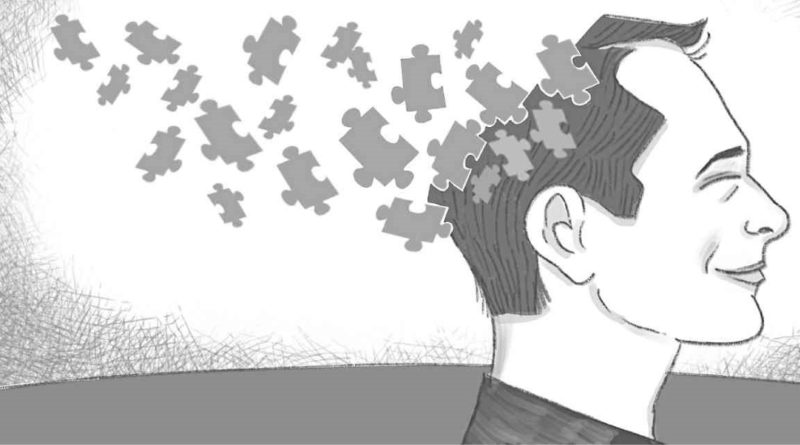EDITORIAL: MANILA – Time for empathetic talk – By P.D.I.
There was no official confirmation from the family, but the emergence of a video appeared to confirm what many friends had feared about the sudden death of the young and personable TV host Seph Ubalde. In the video, Ubalde talked tearfully and at length about his excruciating battle with depression, and signed off with the heartbreaking words: “See you on the other side.”
Ubalde was found lifeless in a hotel room, just months after another well-known personality, Razorback drummer Brian Velasco, ended his life by live-streaming his fatal leap from a building.
.
Their deaths once again bring to the fore a subject many find uncomfortable for public discourse, or too distressing for the dinner table and shrouded too often in shame and guilt to allow for empathetic discussion.
.
But it is a discussion that must be made, because a frank conversation about the subjects of depression and suicide, and how misconceptions still cloud our understanding of them, may stem the tide of self-harm afflicting families and communities.
.
ADS by Cloud 9:
.
– SPACE RESERVE FOR YOUR ADVERTISEMENT –
.
.
The World Health Organization (WHO) has reported that more than 300 million people worldwide are battling depression, an increase of more than 18 percent from 2005 to 2015.
.
And “every year,” said WHO, “close to 800,000 people take their own life… Every suicide is a tragedy that affects families, communities and entire countries, and has long-lasting effects on the people left behind.”
.
Locally, “we don’t have good data on suicide in the Philippines but in 2012, there were 2,550 recorded suicides,” said Health Undersecretary Herminigildo Valle.
.
Another alarming trend noted by mental health experts is the increasing number of young Filipinos who end their lives. From 2012 to 2016, there were 237 suicide cases among children aged between 10 and 14, said Carmelita Ericta, a former government statistician.
.
.
ADS by Cloud 9:
.
– SPACE RESERVE FOR YOUR ADVERTISEMENT –
.
.
In his video, Ubalde talked about how ordinary people can help those grappling with mental health issues: First, friends and family need to be more sensitive instead of being judgmental, he said.
.
“The worst thing that a friend could do or say when a person is depressed is, ‘That’s nothing, I’ve been through worse, or you just have to pray or you should have done this instead of that…’
.
Most depressed people just want someone who listens to their pain and acknowledges that their pain is legitimate and not imaginary.”
.
.
ADS by Cloud 9:
.
– SPACE RESERVE FOR YOUR ADVERTISEMENT –
.
.
Research and treatment costs in the Philippines must also be improved, Ubalde suggested; treatment facilities should move away from the dark and dingy environment of most “basement-based” centers, which do little to improve the patients’ feeling of self-validation.
The high consultation and medication costs also discourage many people from seeking treatment.
This is an area that Republic Act No. 11036 or the Mental Health Act can address more thoroughly, if it is to live up to its goal of making mental health care more accessible to more Filipinos.
.
Can PhilHealth cover consultation costs and prescription medication, for instance? Down the line, government hospitals need to hire and train more mental health professionals and allocate dedicated facilities.
.
More guidance counselors in schools are also needed, as well as hotline volunteers.
.
.
ADS by Cloud 9:
.
– SPACE RESERVE FOR YOUR ADVERTISEMENT –
.
.
Mainstreaming mental health treatment will, in the end, help erase the stigma attached to it, a point succinctly made by an anonymous Facebook post: “Going to a counselor or therapist when you’re feeling sad or overwhelmed should be as normal as going to the doctor when you have the flu. Let’s end the stigma about mental health!”
Indeed. It is important for any person undergoing mental or emotional distress to be able to seek help in a timely manner—to reach out and talk to someone, get professional help, and access both therapy and medication. This is a bona fide public health issue that requires attention, sensitivity, compassion and science-based understanding from both the government and the public. A conversation about it must be had, because, as Dr. Jodi Gold, a psychiatrist and director of Gold Center for Mind Health and Wellness, said in a CNN report: “Talking about suicide does not cause people to kill themselves. Not talking about suicide might.”
.
ADS by Cloud 9:
.
– SPACE RESERVE FOR YOUR ADVERTISEMENT –
.
Where to seek help: The Department of Health’s Hopeline is at tel. no. (02) 8044673, mobile no. 0917-5584673 or toll-free 2919 for Globe and TM subscribers.
The Natasha Goulbourn Foundation Information and Crisis Intervention Center can be reached via:
(02) 804-HOPE (4673)
0917-558-HOPE (4673) or (632) 2114550
0917-852-HOPE (4673) or (632) 9646876
0917-842-HOPE (4673) or (632) 9644084
In Touch Crisis Lines:
(02) 8937603 (24/7)
Globe (63917) 8001123 (24/7)
Sun (63922) 8938944 (24/7)
.
ADS by Cloud 9:
.
– SPACE RESERVE FOR YOUR ADVERTISEMENT –
.
.

All photographs, news, editorials, opinions, information, data, others have been taken from the Internet..aseanews.net | [email protected] / For comments, Email to : Aseanews.net









